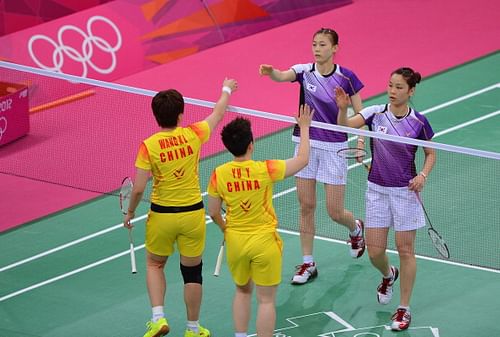
Match throwing in badminton – What happens to the players now?

It has been a week since eight badminton players were disqualified from the Olympics for ‘throwing’ their final group games. The two matches involving the four teams – two from Korea and one each from China and Indonesia – caused such a major controversy that the international federation had to take the extreme step of disqualifying the eight players.
The incident has since died down as the Olympics have progressed. Attention has turned to other things. The players all suffered huge embarrassment in their countries, and people mostly felt they got their just desserts. Everybody has resumed business as usual.
But we must wonder: what happens to these eight players? Were they the only culprits in this saga? Were they the only ones who deserved punishment?
Yu Yang, the World No.1, announced her retirement shortly after her disqualification, saying the decision had ‘trampled upon her dreams’. Greysia Polii, the chirpy Indonesian, turned to her faith to help her, her tweets thanking God and her family for helping her in her hour of crisis. The four Koreans have been severely criticised by their national press.
Although the Chinese, Korean and Indonesian coaches eventually assumed responsibility for their players’ actions, the effects of the controversy will haunt the players more than anyone else. A journalist friend based in Korea for a short while tells me that the media there went after the four players who were asked to return their accreditation cards and sent back in a hurry. The media was waiting at the airport, and has apparently hounded them. The two Korean pairs are both in the top ten, and it would be sad if they were to give up badminton because of this.
While the players were guilty of underperforming, we must recognise that they were under team orders. No player from Asia would go against team orders, for it is the national association that sustains him/ her, unlike European players, who are pretty much on their own. The question to ask, therefore, is this: how are teams going to be deterred by this decision? And if a team or player decides to lose, are they going to be more subtle about it in future?
There are some who believe that the disqualification was a harsh measure, and that the consequences to the players should have been thought out before the punishment was imposed. There are others who think that the decision was motivated by international politics, and that its fallout will be apparent in time to come.
For my part, I believe the decision was firm and fair, and sent out a warning to possible offenders in future. The federation had to take stern action. It also set a precedent to other sports. If such a step hadn’t been taken, badminton would have run the risk of becoming like boxing, where results are so flawed as to make the sport almost unworthy of the Olympics. Obviously, if punishment had to be meted out, the players had to be the ones to take the rap, for it is they who perform on court. They are the ones who take home the medals, and they should be the ones answerable for their actions. One hopes the national associations will take the decision in the right spirit, and caution coaches from instructing players to throw matches in future.
We must also ask what would happen if there were two or three Indian pairs in the top ten. Would we, in an all-India contest at an important event, let a true contest happen, or would we ask one to underperform, to give the other team a better chance in their subsequent contest? National interest versus ethics is a tricky terrain.